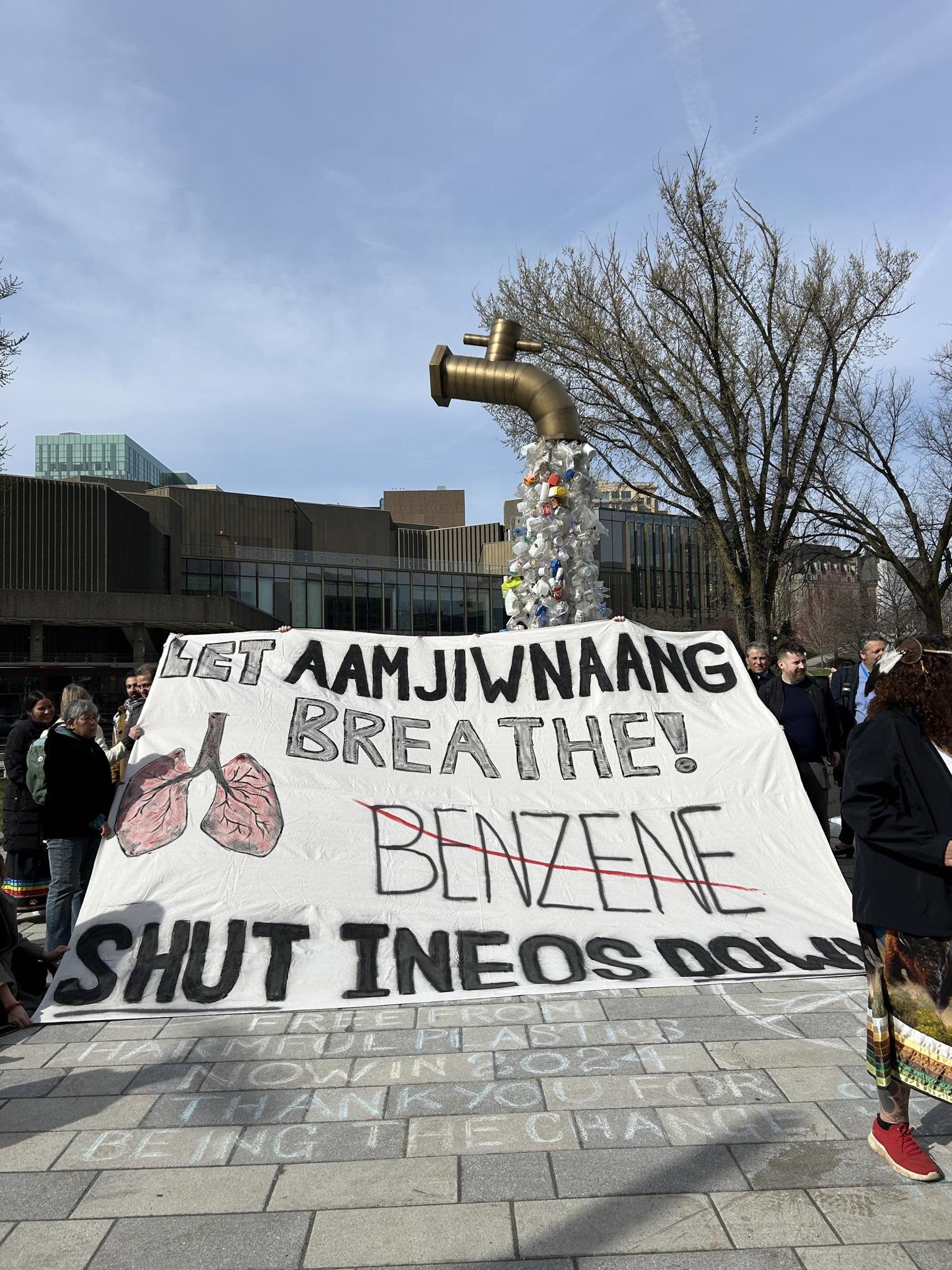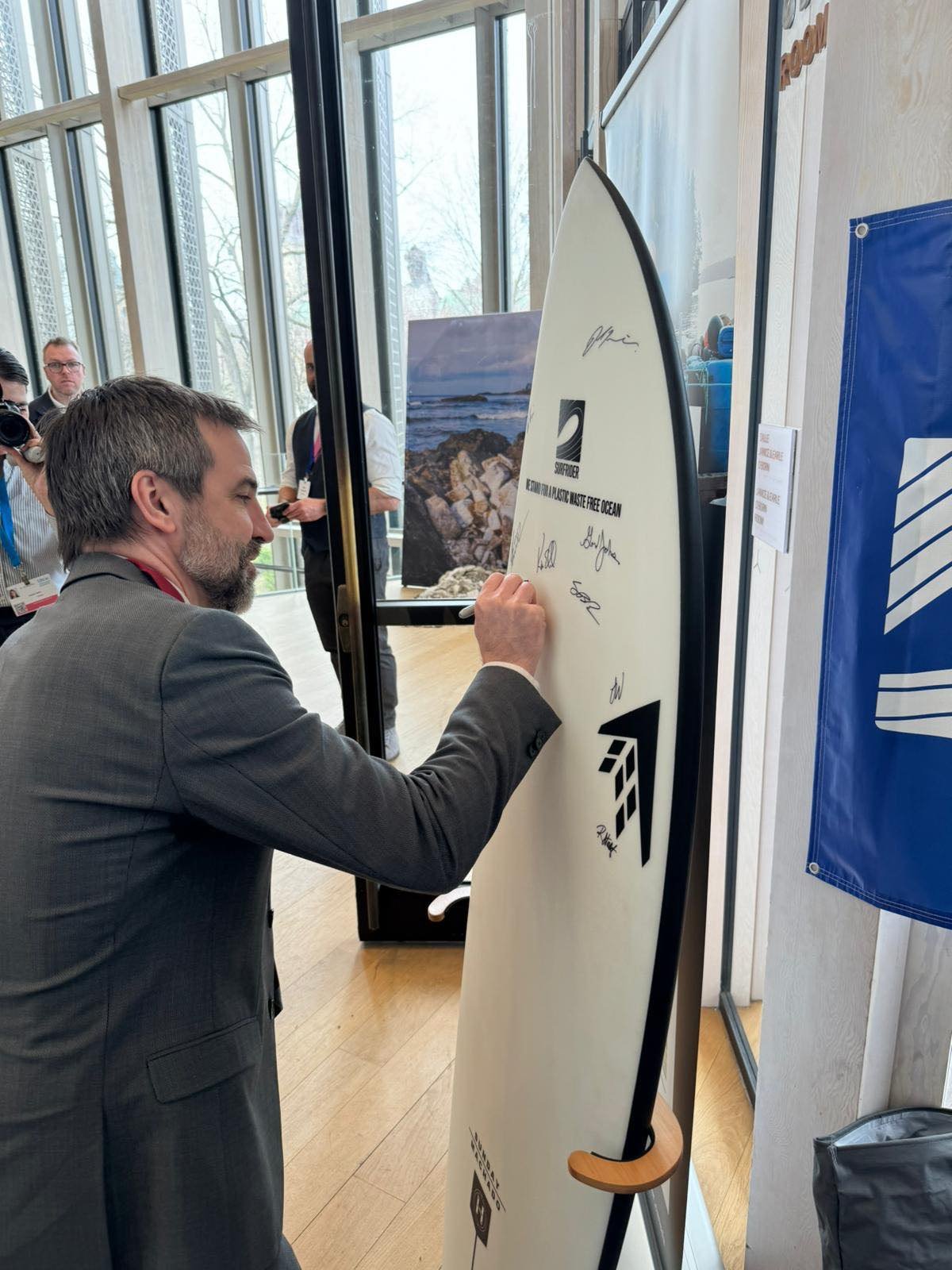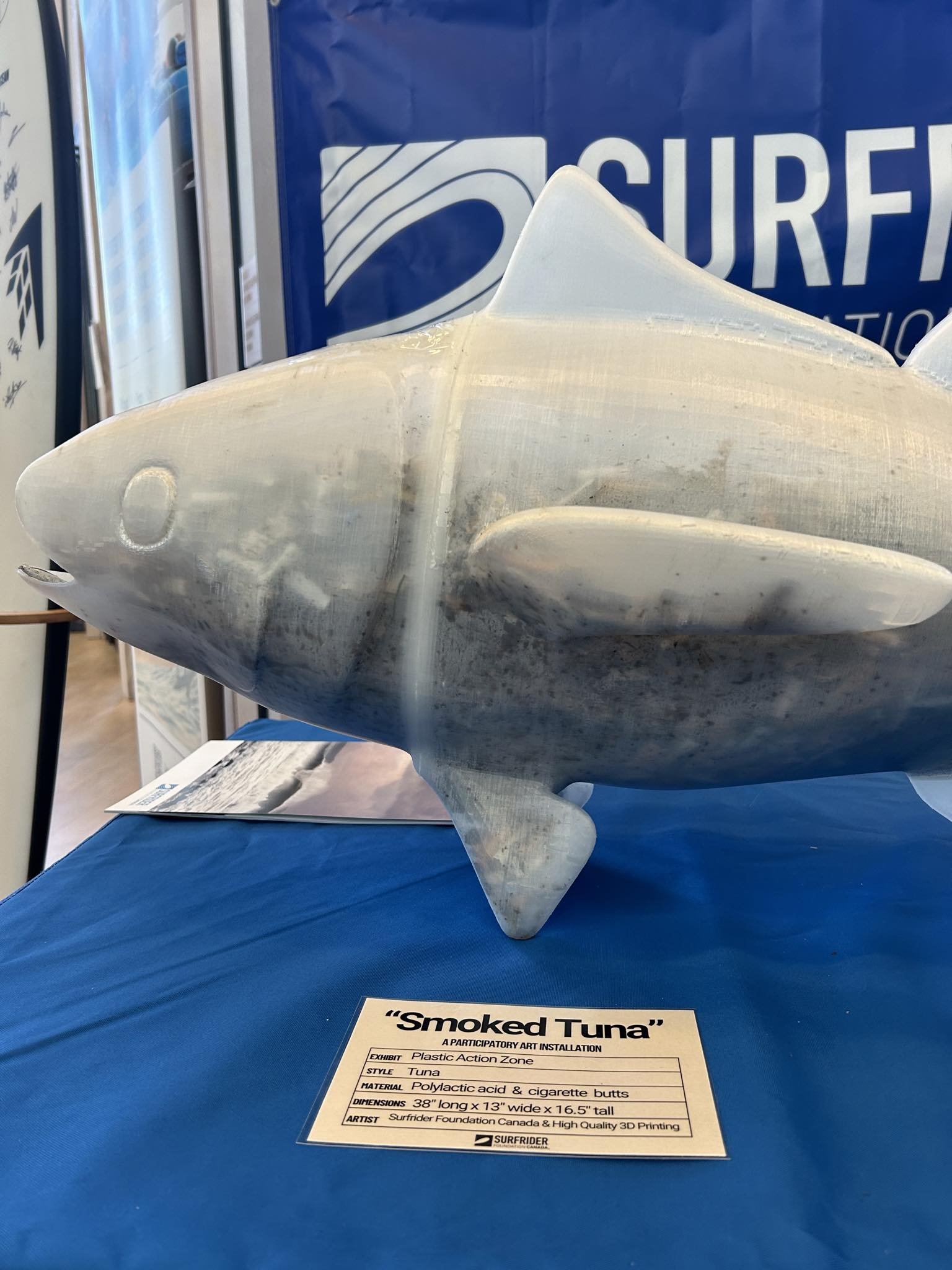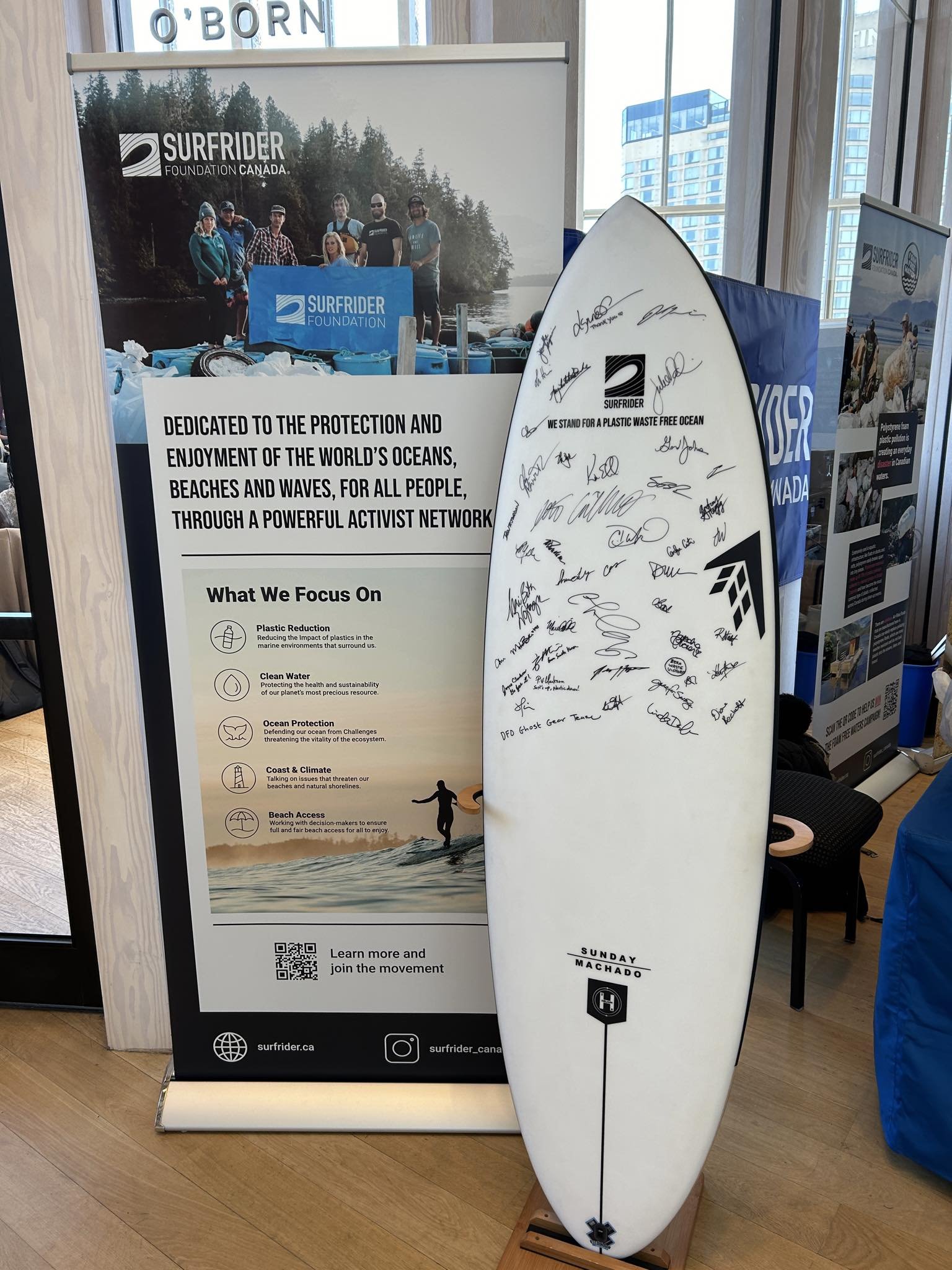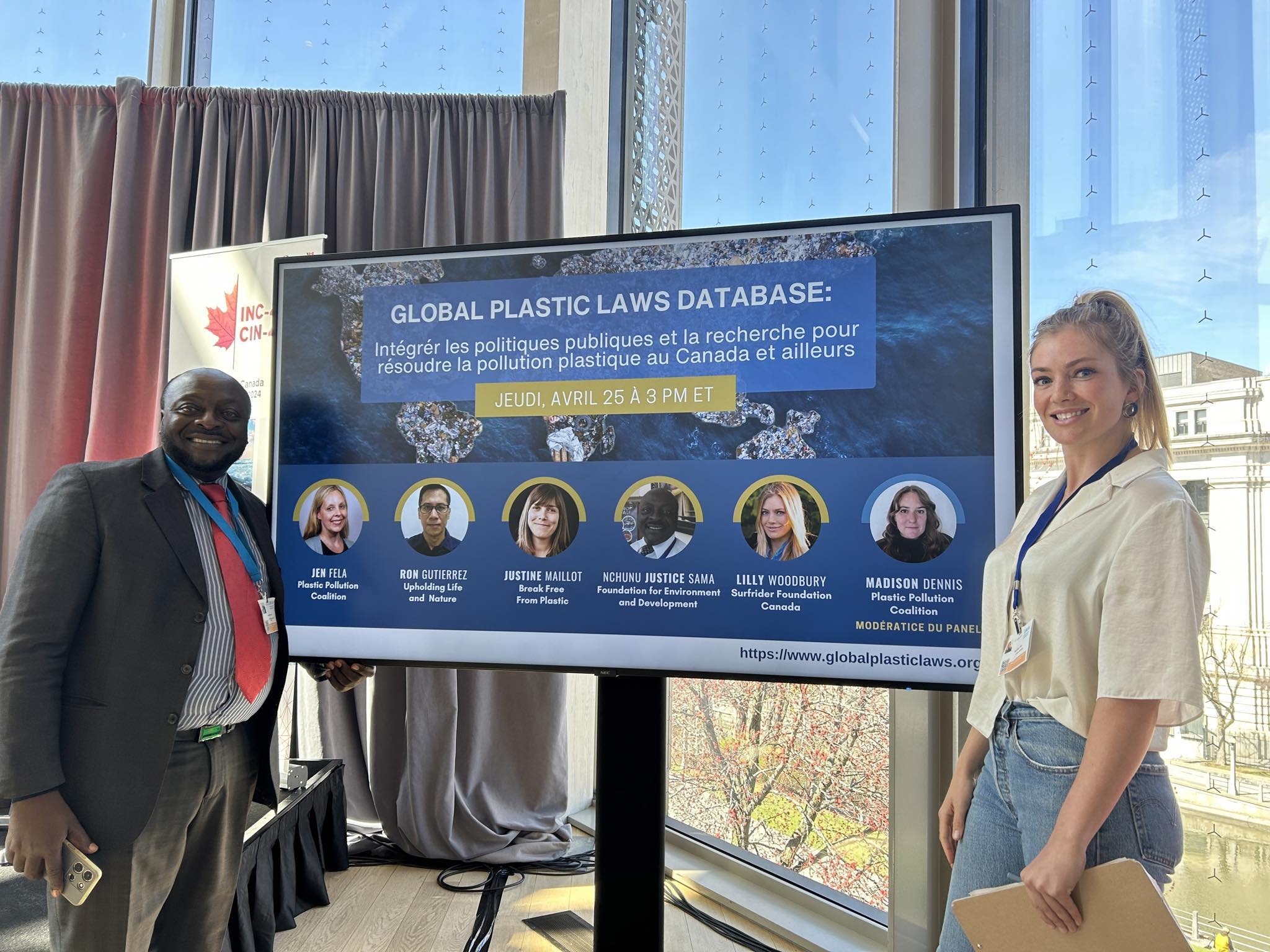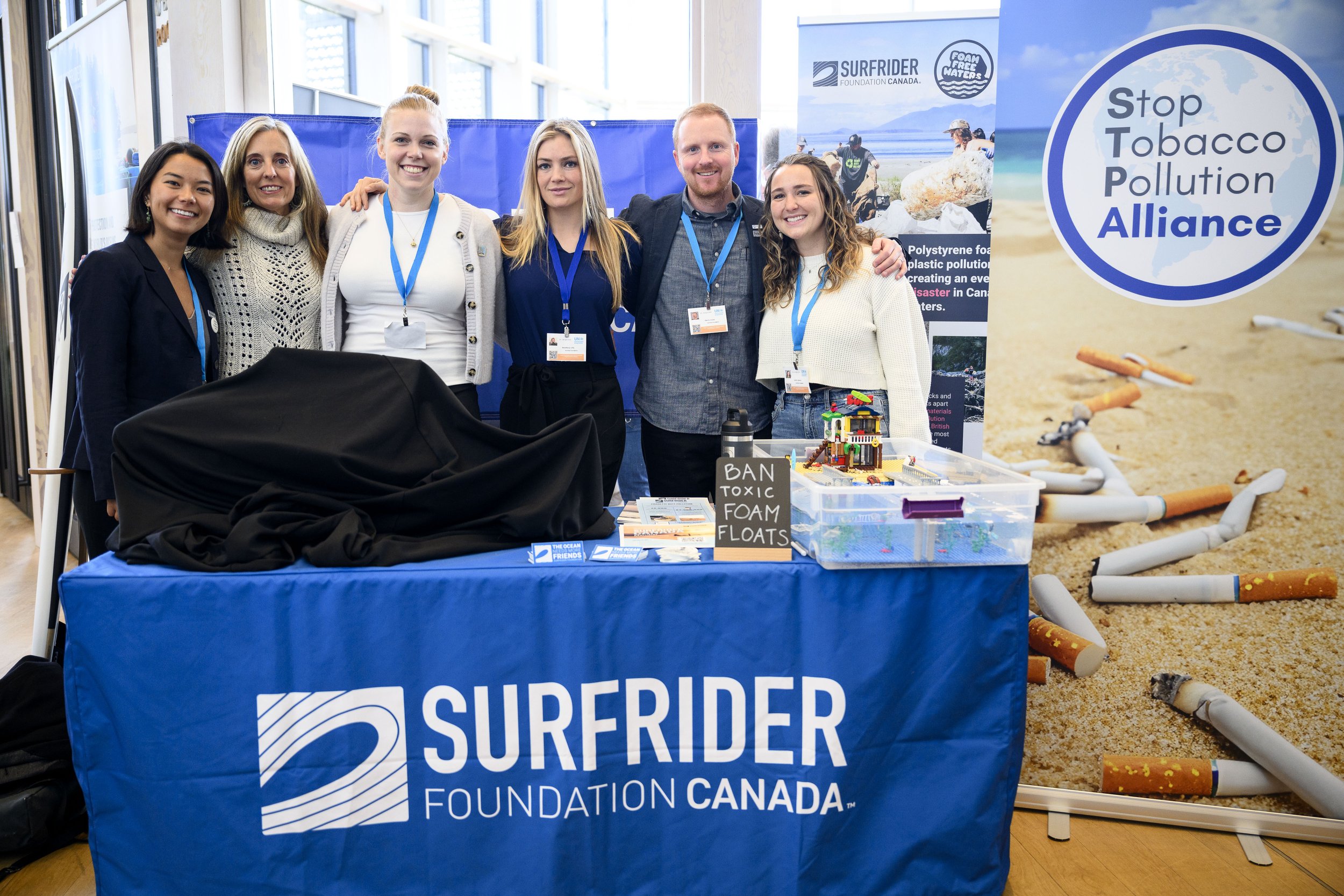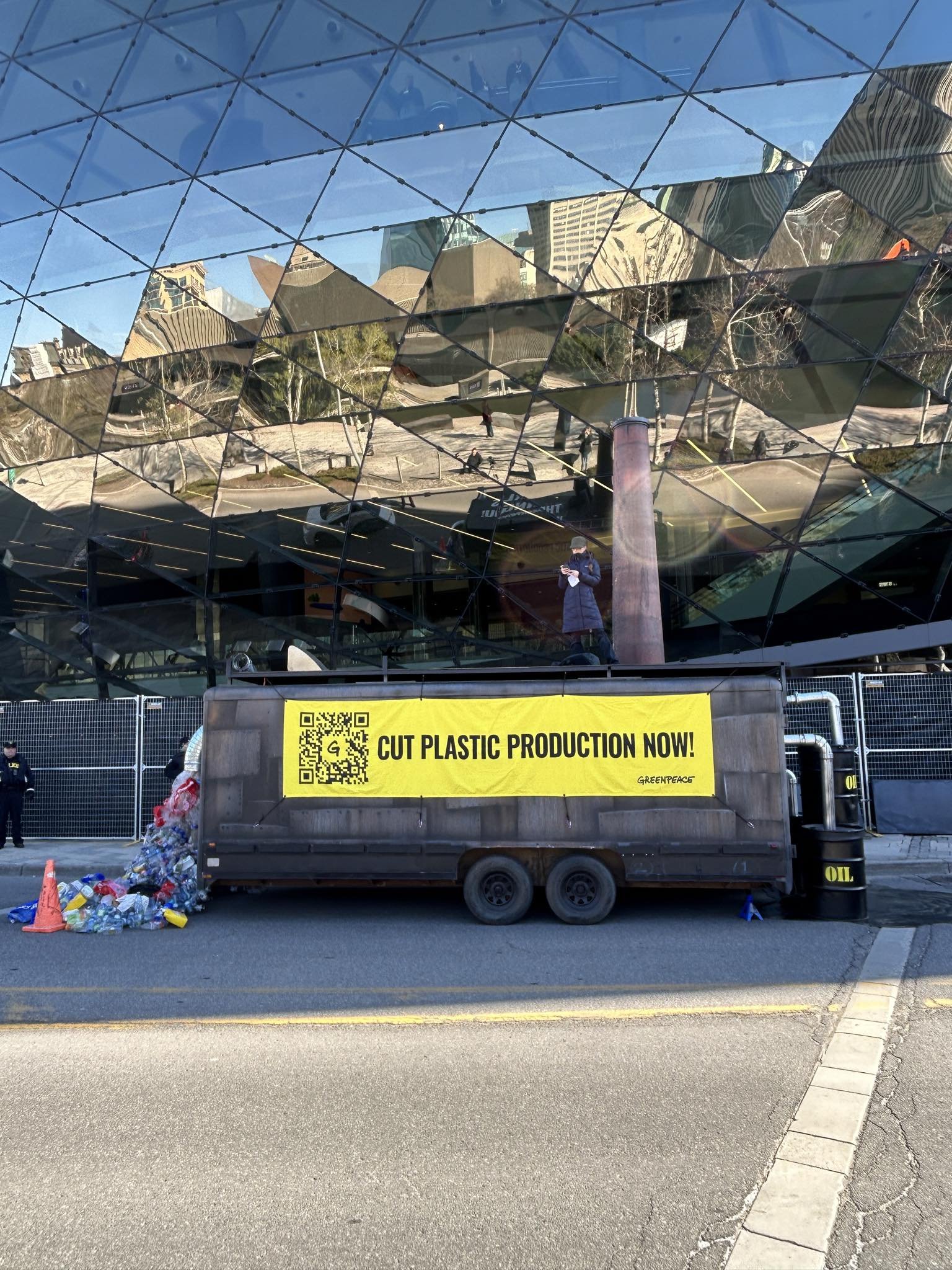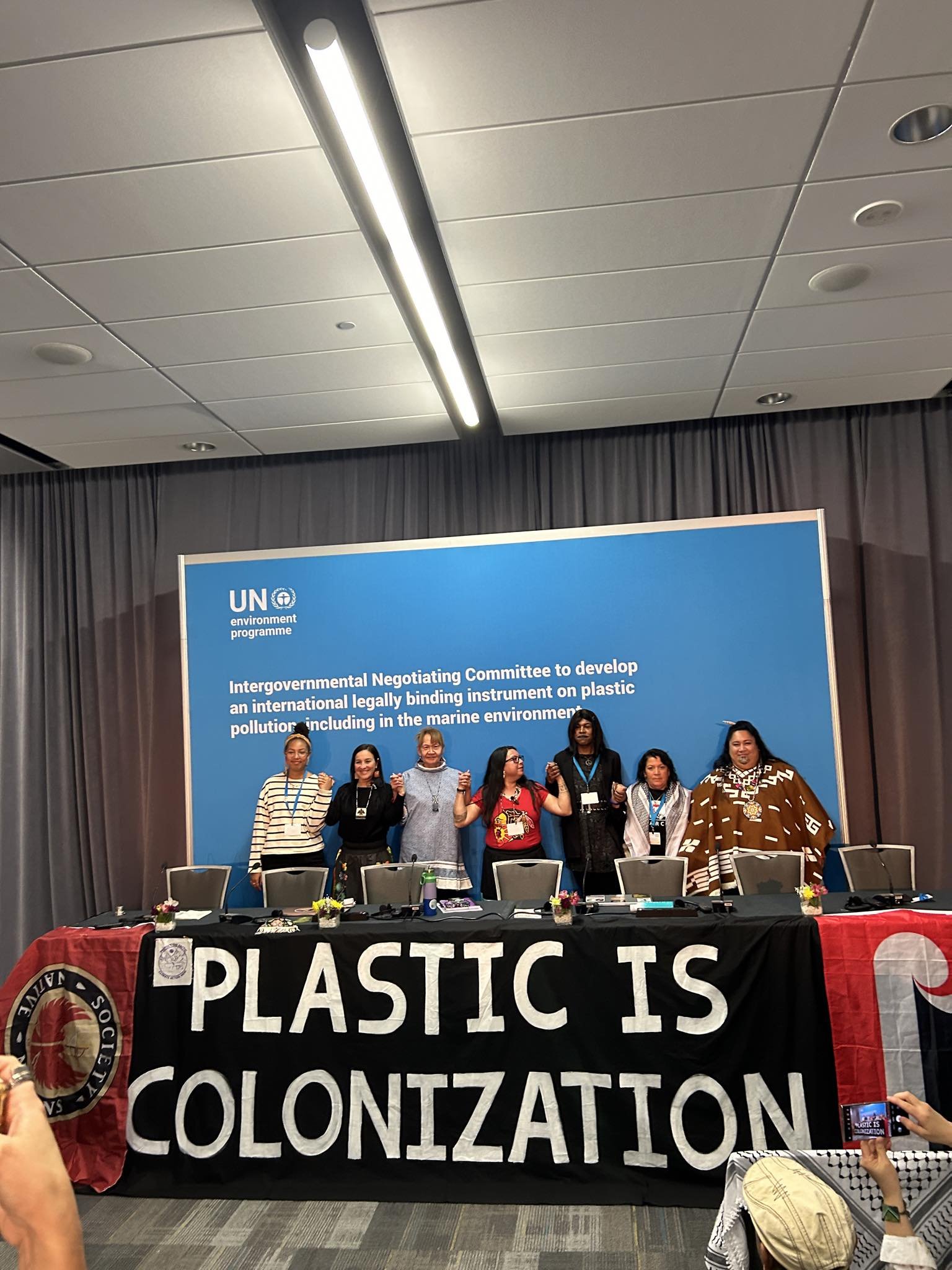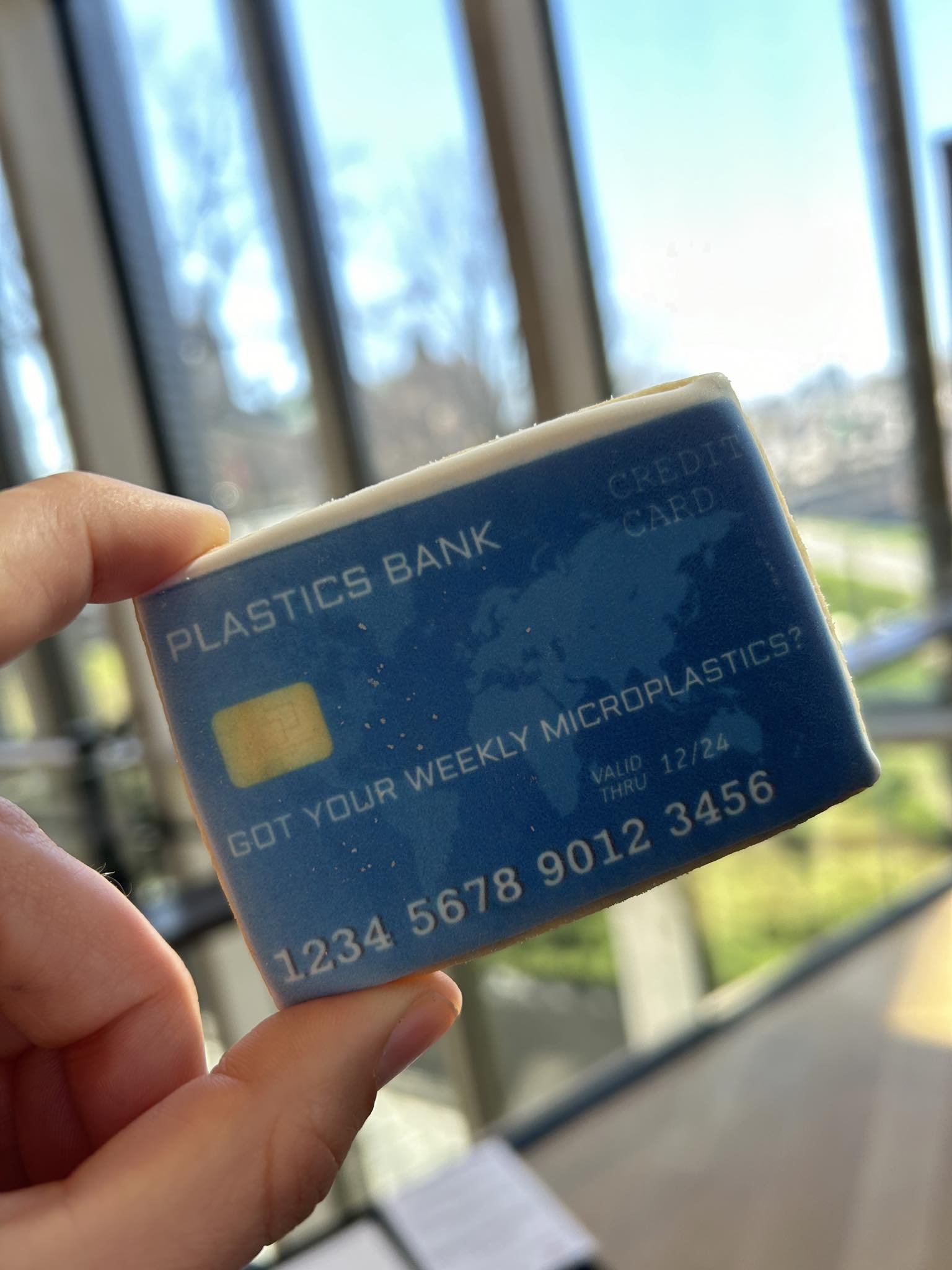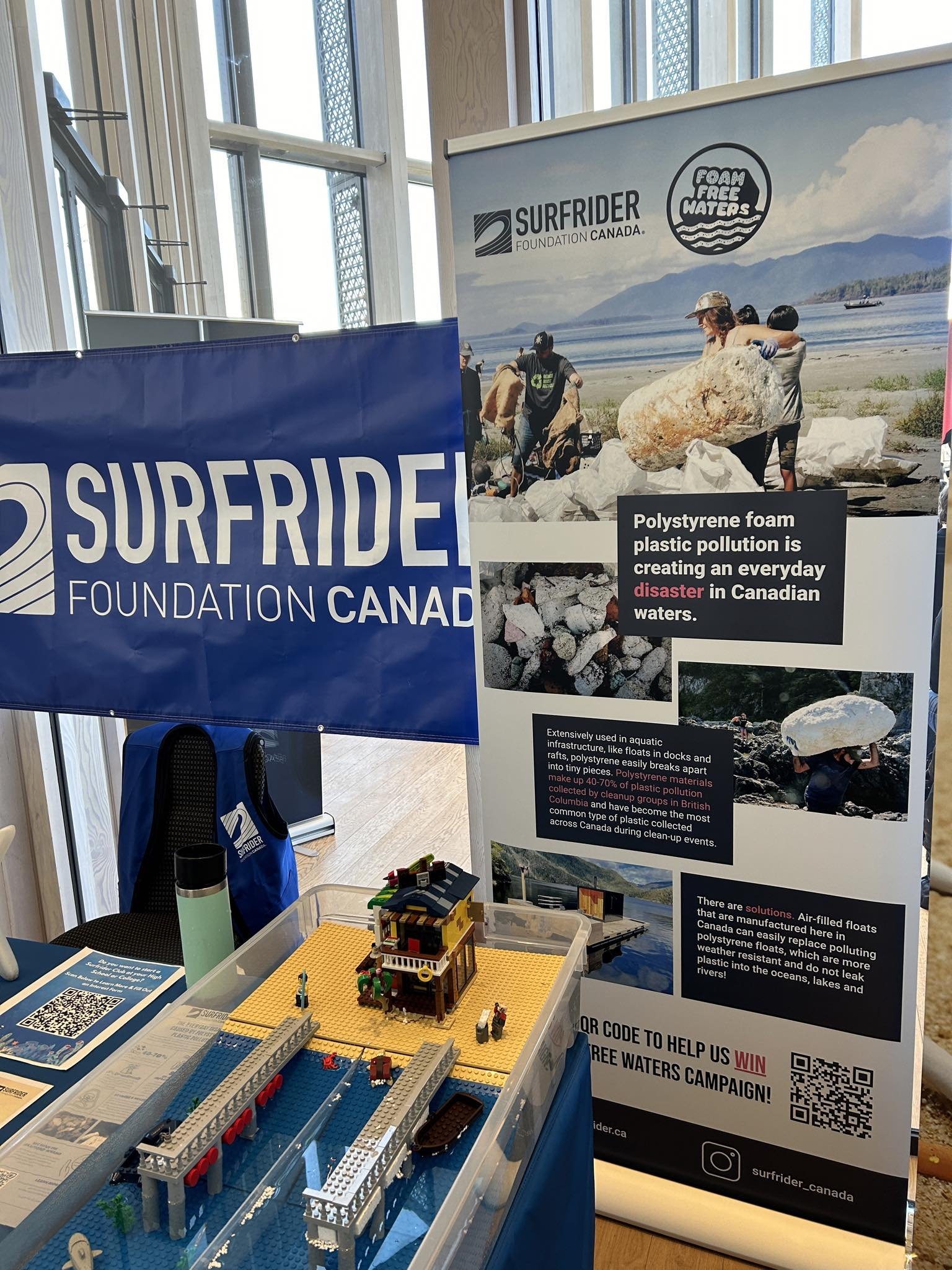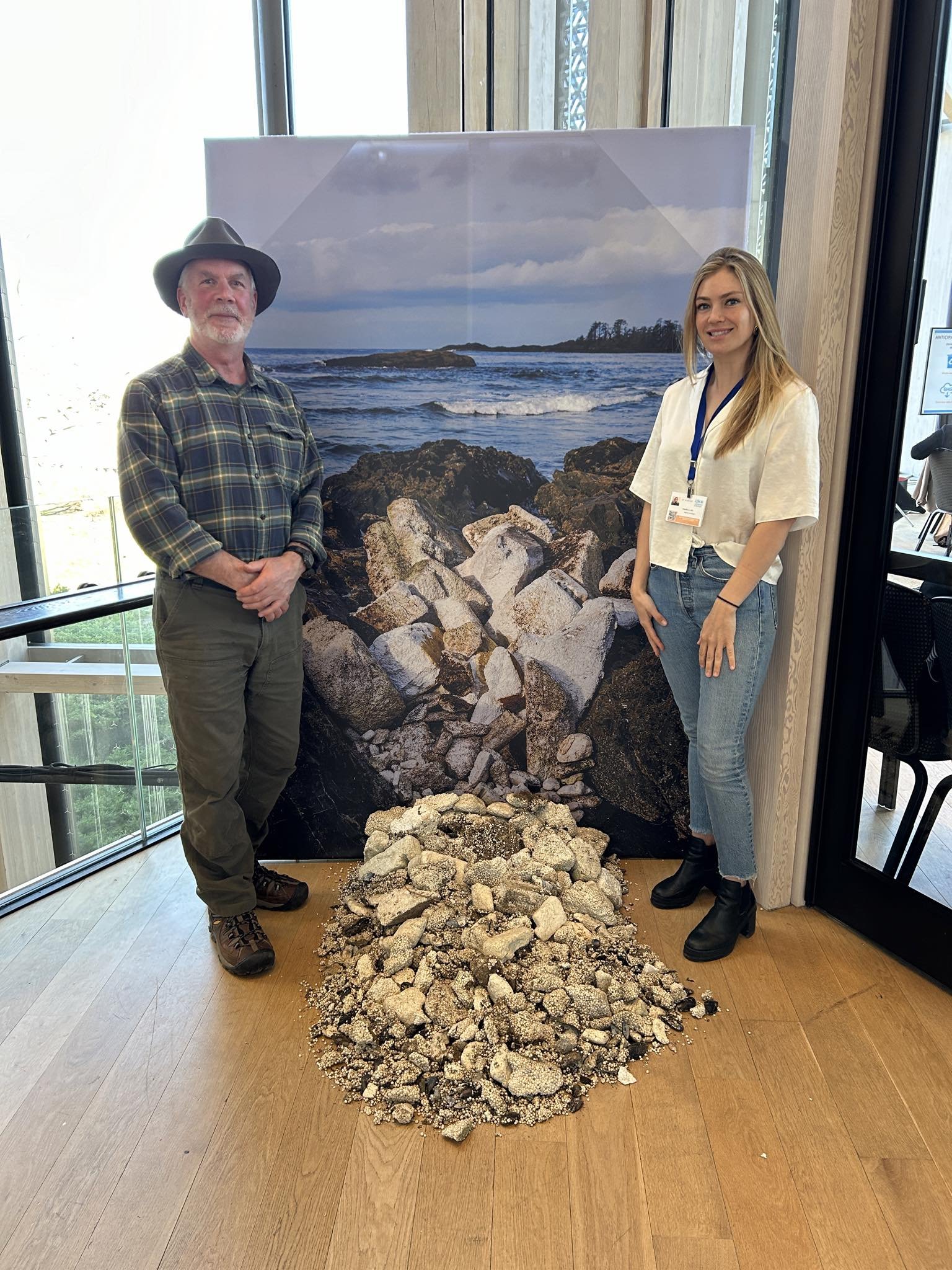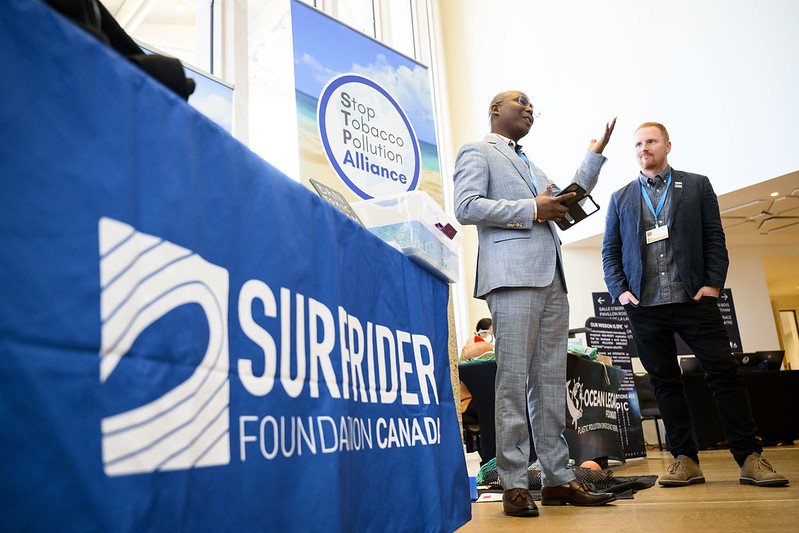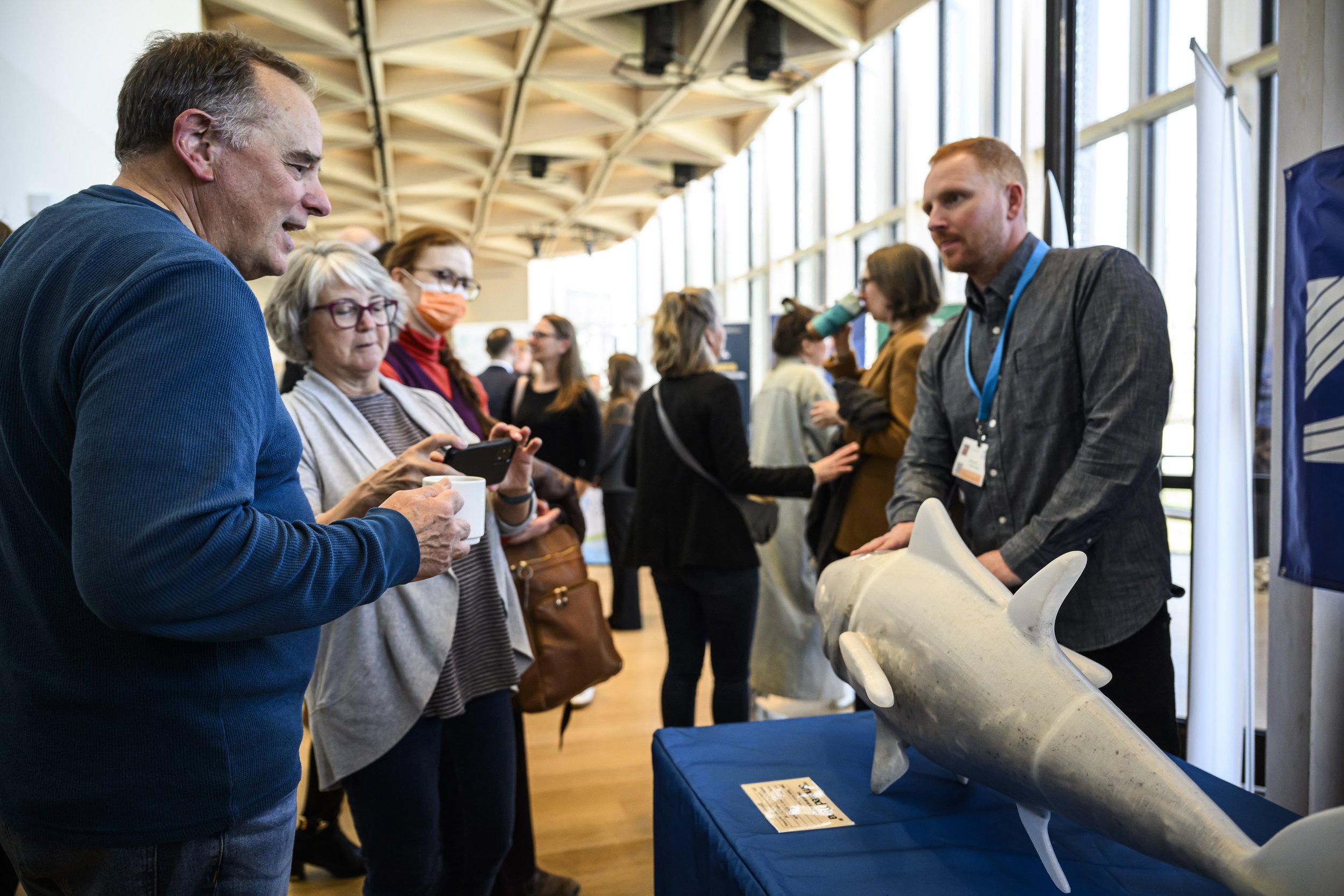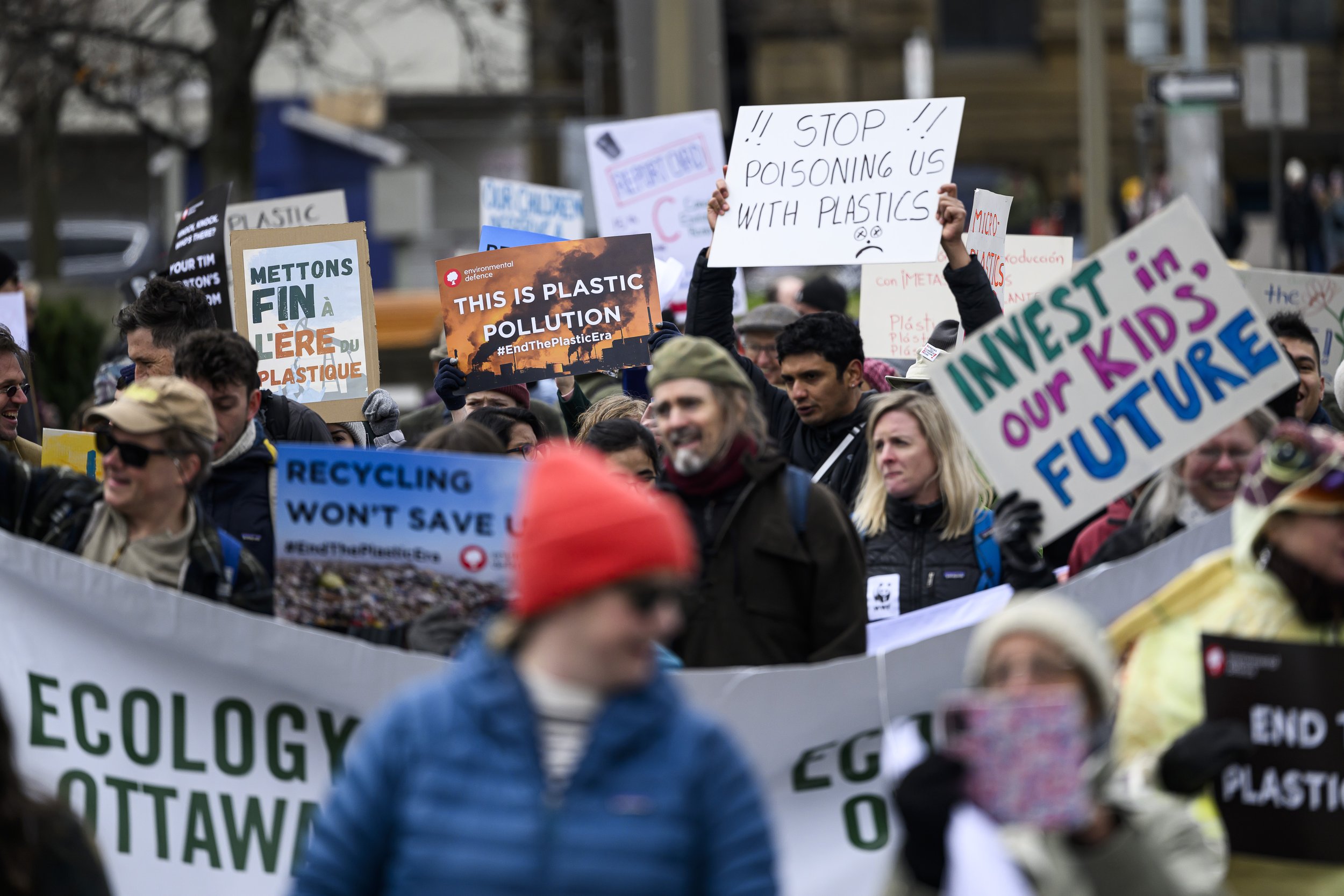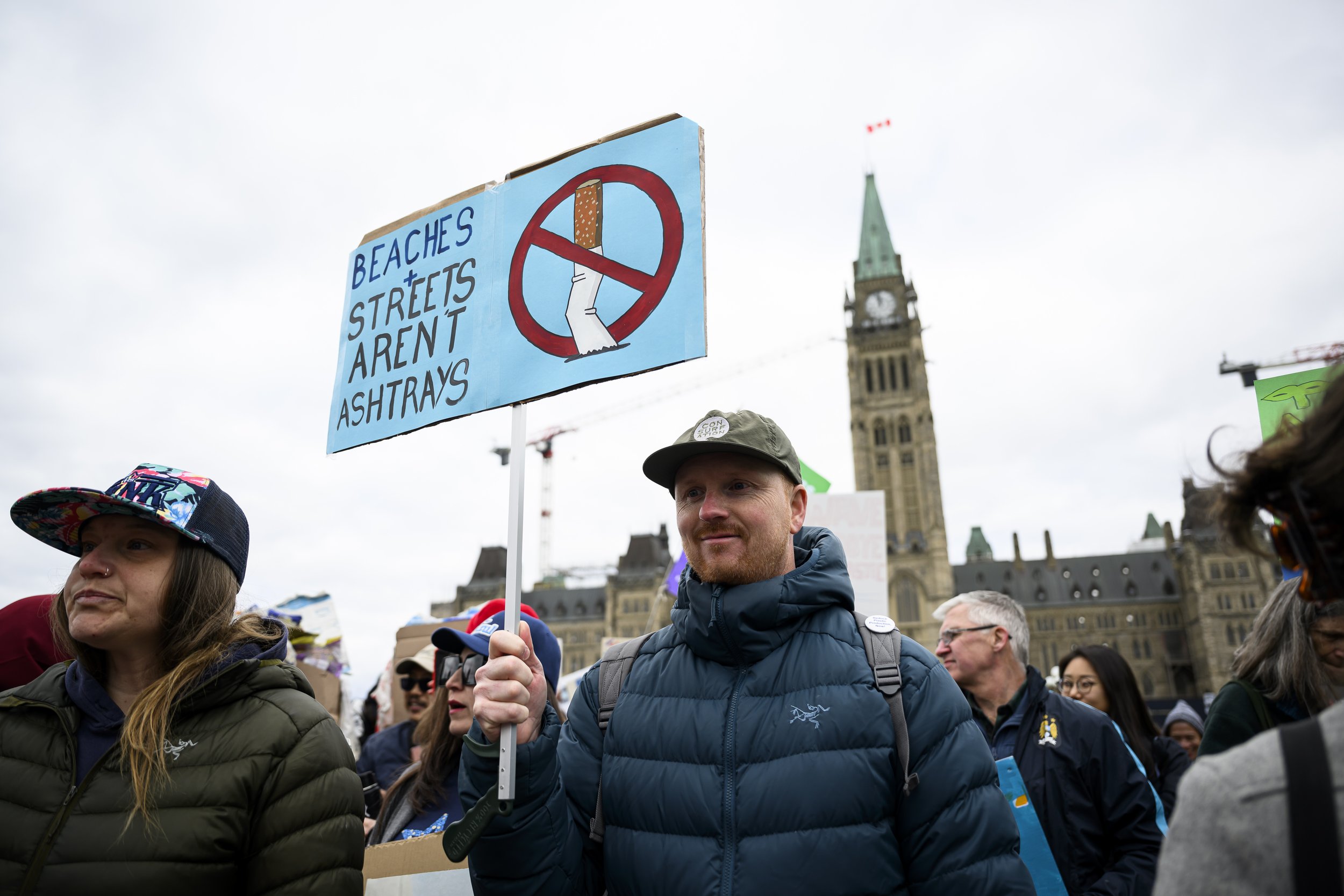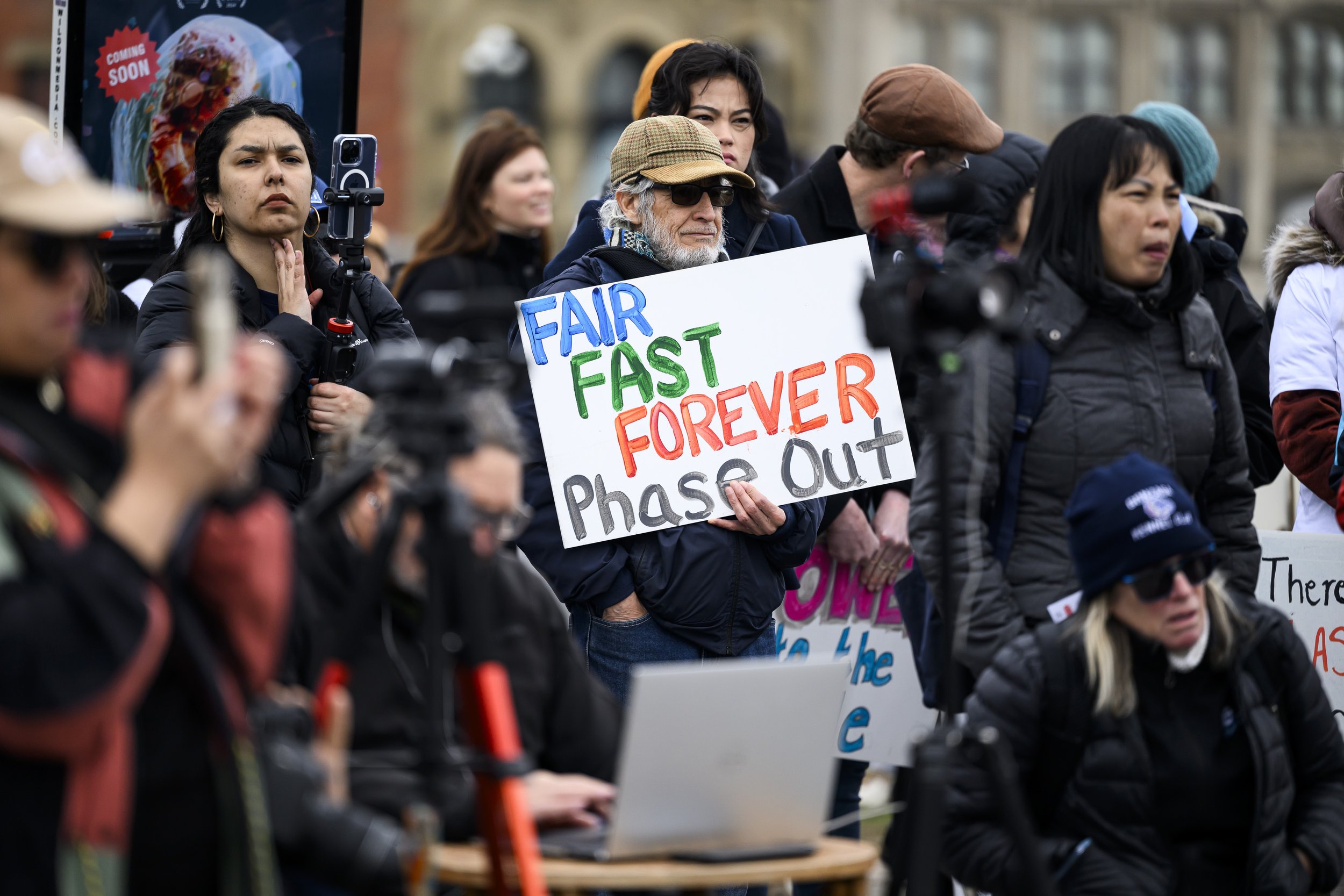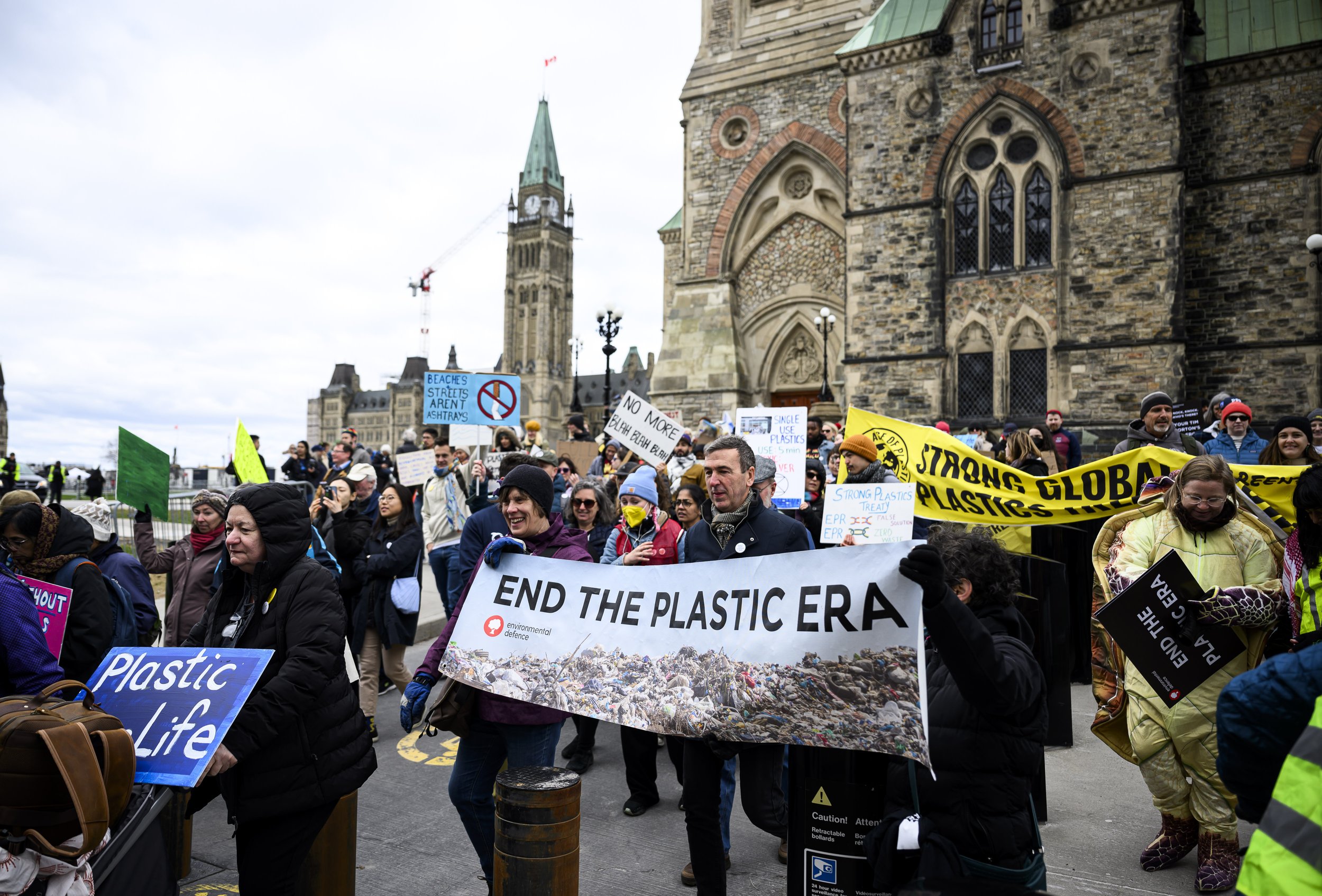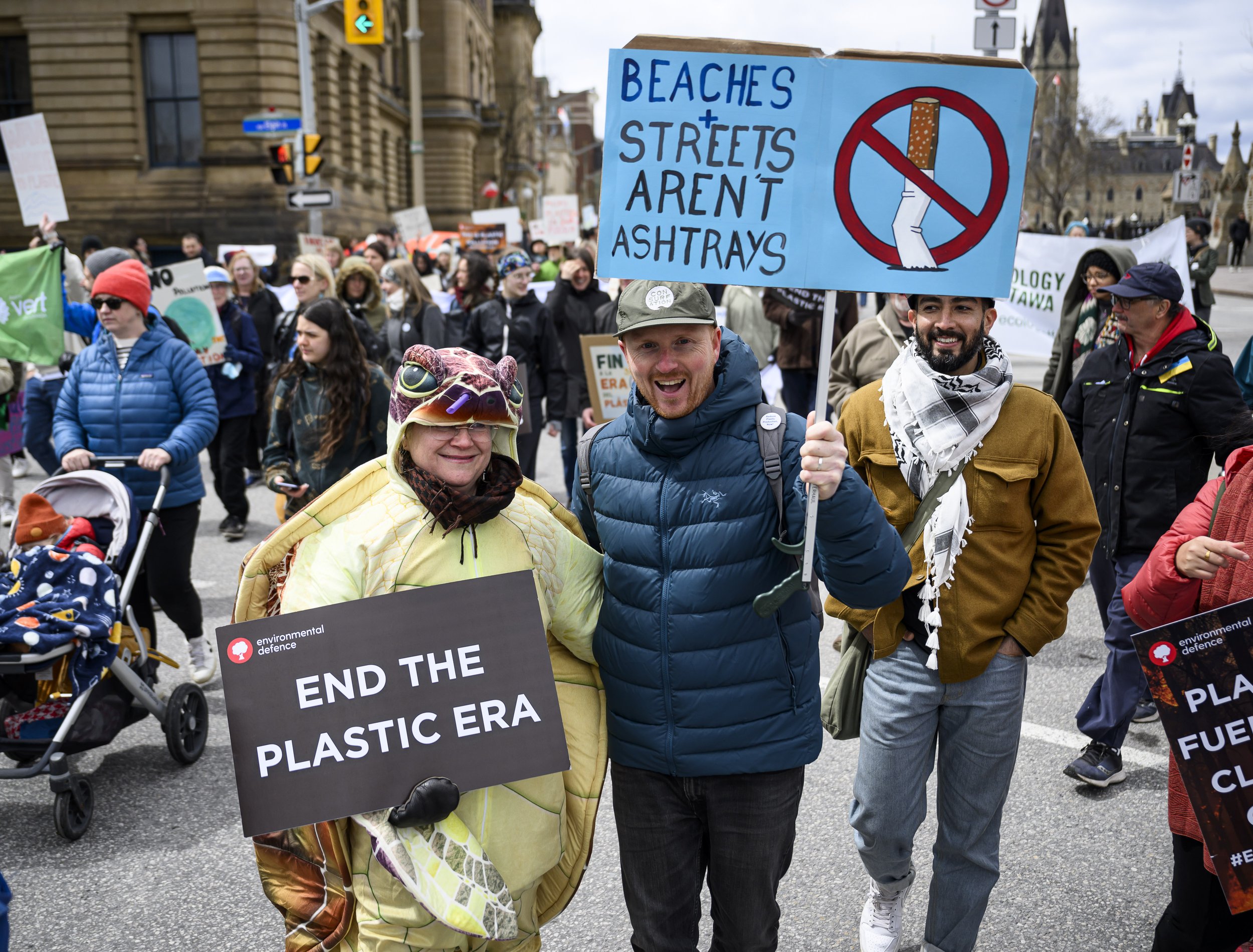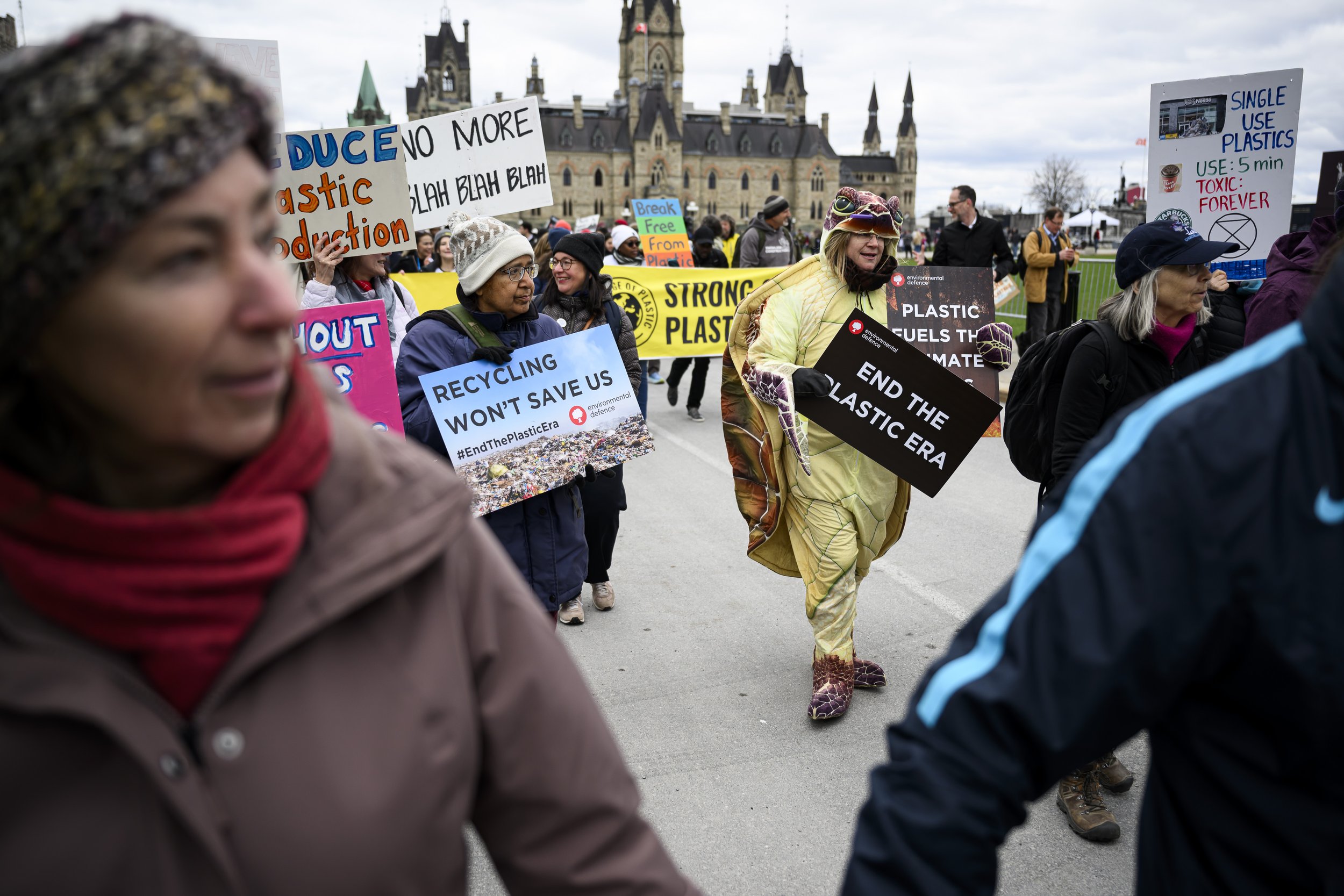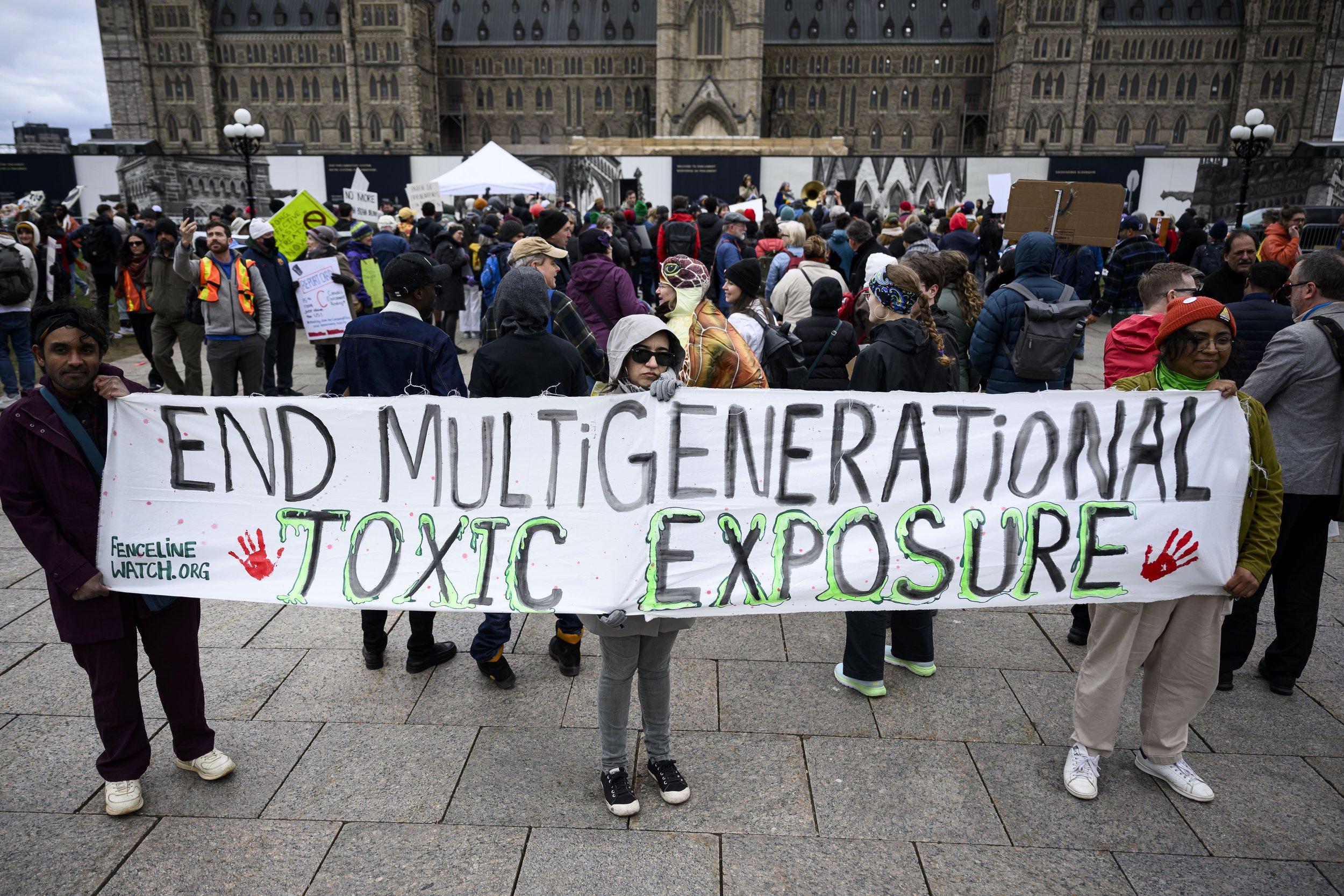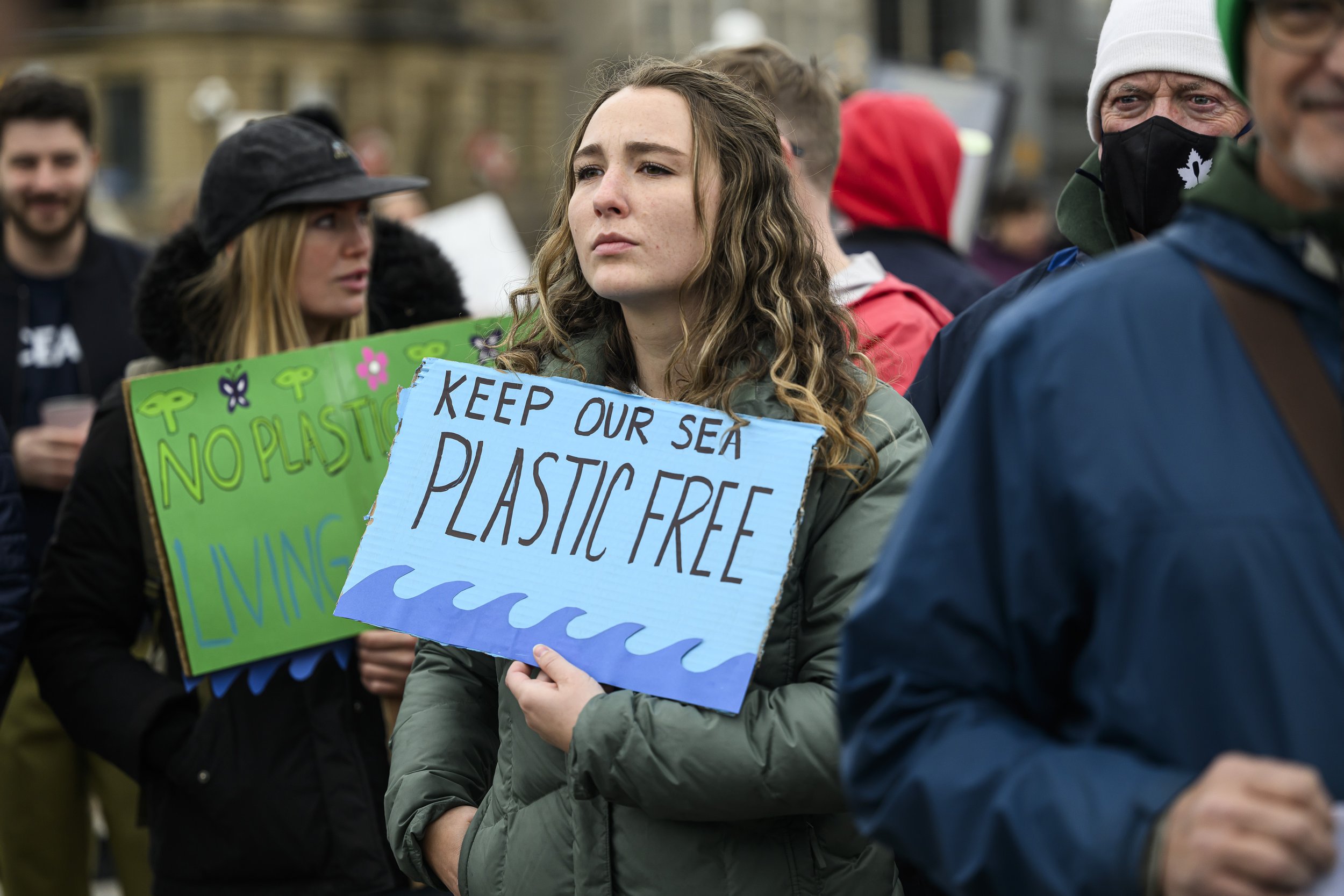Global Plastics Treaty Negotiations Highlights & Takeaways
We’ve just gotten home from INC-4, the fourth round of negotiations for a Global Plastics Treaty (GPT), which was held on unceded Anishinabe Algonquin territory in Canada’s capital city, Ottawa. The negotiations welcomed 4,000 representatives from UN Member States and observers from across the globe to revise the zero draft for a GBT. The zero draft will continue to be narrowed into the final treaty agreement, and contains multiple options for each treaty provision. To understand the zero draft, you can read Centre for International Environmental Law’s Annotated Revised Zero Draft of the Plastics Treaty.
Attending INC-4 was an education in the mechanics a a global treaty negotiation, and, like surfing, it’s a steep learning curve. With 176 countries present with contrasting positions, and over 70 pages of the zero draft to review over 7 days, there were also numerous highs and lows experienced throughout the negotiations. For us, the peak of the experience was the Indigenous and frontline folks who were present to tell their stories and demand an ambitious GBT that cuts plastic production and centres human health and justice. Also, being able to connect with and strengthen our coalition with incredible organizations and Indigenous Nations from across Turtle Island and around the world. Some of our favourite tactics from the aforementioned actors includes the March to End the Plastic Era, the plastic factory that was brought to the negotiations by Greenpeace Canada, and the credit card cookies handed out to delegates and observers by the Gallifrey Foundation.
Surfrider Canada and US staff teamed up for a week-long exhibition at the Plastic Action Zone. Our exhibition was in partnership with marine debris artist Pete Clarkson, who made a visually striking polystyrene foam art installation, as well as Ocean Legacy, who showcased their incredible EPIC Program and marine debris recycling. Our educational booth at the exhibition that was equipped with a foam dock LEGO diorama - bringing awareness to our Foam Free Waters campaign. We also revealed our “Smoked Tuna” participatory art installation during a press event on April 34, a bioplastic 3D printed hollow tuna, which participants were able to drop their cigarette butts into. From just a few days, we collected ten thousand butts from the streets of Ottawa to add into the “Smoked Tuna”, using this art installation to bring awareness to the need to ban plastic filters in cigarettes. We also joined external events, including giving a statement at a press conference for Motion-120, calling on the Government of Canada to end the export of plastic waste to developing nations, as well as the Plastic Pollution Coalition panel to discuss their Global Plastic Law database and resource center, discussing how the database can support our advocacy and the larger movement to end plastic pollution. On the final day of INC-4, we co-hosted a Member of Parliament reception alongside Environmental Defence, Ecojustice, Équiterre, David Suzuki Foundation, Oceana and Friends of the Earth. We also engaged with the Canadian delegation multiple times, including with Hon Steven Guilbeault, Minister of Environment and Climate Change and Parliamentary Secretary Julie Dabrusin, sharing our perspective on critical issues they need to address during the INC process.
The low point of the negotiations was the 37% increase in plastic and fossil fuel lobbyists in attendance from the last round of negotiations in Nairobi, Kenya (INC-3). These lobbyists appeared on country delegations and were also given privileged access to member-state only sessions. The lobbyists had an undue impact on the results of the negotiations, which is a massive conflict of interest. Meanwhile, people directly impacted by the plastics crisis struggled to be heard and their influence was thwarted. The irony and injustice of this dynamic was palpable. During INC-4, Aamjiwnaang First Nation’s community was evacuated due to a benzene spill in their community from INEOS Styrolution, a company that produces chemicals used in plastic and rubber products. Janelle Nahmabin, an elected councillor with Aamjiwnaang First Nation, joined the negotiations as an observer and stated that the "plastics treaty is long overdue," adding that her "community has been experiencing environmental racism — the effects of polluters for over 100 years." Aamjiwnaang First Nation territory is also the site of 40% of Canada’s petrochemical industry, all taking place without consent. Indigenous nations need a voice at the treaty decision-making table, and the fact that this isn’t a current reality exposes a major flaw with the UN negotiating system.
The way we see it, if someone is convicted of a crime, would that same person be allowed to be on the jury for their case and determine their fate? No. Yet, this is exactly the scenario that played out at INC-4 with plastics and petrochemical lobbysists, which undercut the ambitious treaty measures that the public, including Indigenous nations, scientists, waste pickers, frontline community members, and youth are calling for. As a result of this situation and because of a coalition of fossil fuel–aligned countries, including Russia, China, and Saudi Arabia, continued to forcefully object to treaty measures to address plastic production. These member states, using the name “Like-Minded Group,” suggested changes to the treaty text that gut it almost entirely. Ultimately, to end the plastics crisis, we need to turn off the tap - and this means capping plastic production. We urge the Government of Canada to stop waffling on this call to action, which is the necessary centrepiece for what can be a revolutionary GPT.
The outcome of INC-4 includes countries committing to advancing intersessional work on elements of the treaty agreement, including the financial mechanism, plastic products to ban, chemicals of concern, product design, reusability, and recyclability. However, the decision to exclude upstream measures from this process hampers efforts to include extraction or production reduction measures in the draft plastics treaty, undermining its ambition and neglecting plastics production's lead role in in the triple planetary crisis. The negotiations in Ottawa also highlighted champions advocating for a comprehensive treaty, like Perú and Rwanda, who proposed reducing global primary plastics use by 40% by 2040. As countries progress to INC-5, the fifth and final round of negotiations, taking place in Busan, the Republic of Korea, in November 2024, we need ambitious countries to informally work on the issue of plastic production and make commitments that are rooted in and backed by action.
On the final night of the negotiations, we co-hosted an MP reception to discuss INC-4 and the important next steps. MP Elizabeth May took the podium, and shared a hopeful reminder: this treaty is in an embryonic stage. As the treaty agreement continues to take shape, there is still potential that it can become the tool that we need to end the plastics crisis. To make this possible, we must not let the petrochemical industry hijack the GPT during this once-in-a-generation opportunity. Member nations need to be following the demands from Indigenous Peoples, frontline community, scientists, the public and civil society organizations for a truly ambitious treaty. We need to make our voices loud and unignorable and push as hard as we can over the next six months. Stay tuned for more actions and ways to engage in this movement!
If you’d like to dig deeper, you can read the daily reports from the negotiations.



